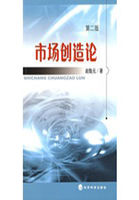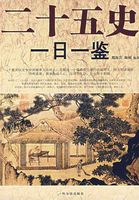Many specious arguments have been urged against the retrospective law by which Strafford was condemned to death. But all these arguments proceed on the supposition that the crisis was an ordinary crisis. The attainder was, in truth, a revolutionary measure. It was part of a system of resistance which oppression had rendered necessary. It is as unjust to judge of the conduct pursued by the Long Parliament towards Strafford on ordinary principles, as it would have been to indict Fairfax for murder because he cut down a cornet at Naseby. From the day on which the Houses met, there was a war waged by them against the King, a war for all that they held dear, a war carried on at first by means of parliamentary forms, at last by physical force; and, as in the second stage of that war, so in the first, they were entitled to do many things which, in quiet times, would have been culpable.
We must not omit to mention that those who were afterwards the most distinguished ornaments of the King's party supported the bill of attainder. It is almost certain that Hyde voted for it.
It is quite certain that Falkland both voted and spoke for it.
The opinion of Hampden, as far as it can be collected from a very obscure note of one of his speeches, seems to have been that the proceeding by Bill was unnecessary, and that it would be a better course to obtain judgment on the impeachment.
During this year the Court opened a negotiation with the leaders of the Opposition. The Earl of Bedford was invited to form an administration on popular principles. St. John was made solicitor-general. Hollis was to have been secretary of state, and Pym chancellor of the exchequer. The post of tutor to the Prince of Wales was designed for Hampden. The death of the Earl of Bedford prevented this arrangement from being carried into effect; and it may be doubted whether, even if that nobleman's life had been prolonged, Charles would ever have consented to surround himself with counsellors whom he could not but hate and fear.
Lord Clarendon admits that the conduct of Hampden during this year was mild and temperate, that he seemed disposed rather to soothe than to excite the public mind, and that, when violent and unreasonable motions were made by his followers, he generally left the House before the division, lest he should seem to give countenance to their extravagance. His temper was moderate. He sincerely loved peace. He felt also great fear lest too precipitate a movement should produce a reaction. The events which took place early in the next session clearly showed that this fear was not unfounded.
During the autumn the Parliament adjourned for a few weeks.
Before the recess, Hampden was despatched to Scotland by the House of Commons, nominally as a commissioner, to obtain security for a debt which the Scots had contracted during the last invasion; but in truth that he might keep watch over the King, who had now repaired to Edinburgh, for the purpose of finally adjusting the points of difference which remained between him and his northern subjects. It was the business of Hampden to dissuade the Covenanters from making their peace with the Court, at the expense of the popular party in England.
While the King was in Scotland, the Irish rebellion broke out.
The suddenness and violence of this terrible explosion excited a strange suspicion in the public mind. The Queen was a professed Papist. The King and the Archbishop of Canterbury had not indeed been reconciled to the See of Rome; but they had, while acting towards the Puritan party with the utmost rigour, and speaking of that party with the utmost contempt, shown great tenderness and respect towards the Catholic religion and its professors. In spite of the wishes of successive Parliaments, the Protestant separatists had been cruelly persecuted. And at the same time, in spite of the wishes of those very Parliaments, laws which were in force against the Papists, and which, unjustifiable as they were, suited the temper of that age, had not been carried into execution. The Protestant nonconformists had not yet learned toleration in the school of suffering. They reprobated the partial lenity which the government showed towards idolaters; and, with some show of reason, ascribed to bad motives conduct which, in such a king as Charles, and such a prelate as Laud, could not possibly be ascribed to humanity or to liberality of sentiment. The violent Arminianism of the Archbishop, his childish attachment to ceremonies, his superstitious veneration for altars, vestments, and painted windows, his bigoted zeal for the constitution and the privileges of his order, his known opinions respecting the celibacy of the clergy, had excited great disgust throughout that large party which was every day becoming more and more hostile to Rome, and more and more inclined to the doctrines and the discipline of Geneva. It was believed by many that the Irish rebellion had been secretly encouraged by the Court; and, when the Parliament met again in November, after a short recess, the Puritans were more intractable than ever.
But that which Hampden had feared had come to pass. A reaction had taken place. A large body of moderate and well-meaning men, who had heartily concurred in the strong measures adopted before the recess, were inclined to pause. Their opinion was that, during many years the country had been grievously misgoverned, and that a great reform had been necessary; but that a great reform had been made, that the grievances of the nation had been fully redressed, that sufficient vengeance had been exacted for the past, that sufficient security had been provided for the future, and that it would, therefore, be both ungrateful and unwise to make any further attacks on the royal prerogative. In support of this opinion many plausible arguments have been used.
But to all these arguments there is one short answer. The King could not be trusted.















